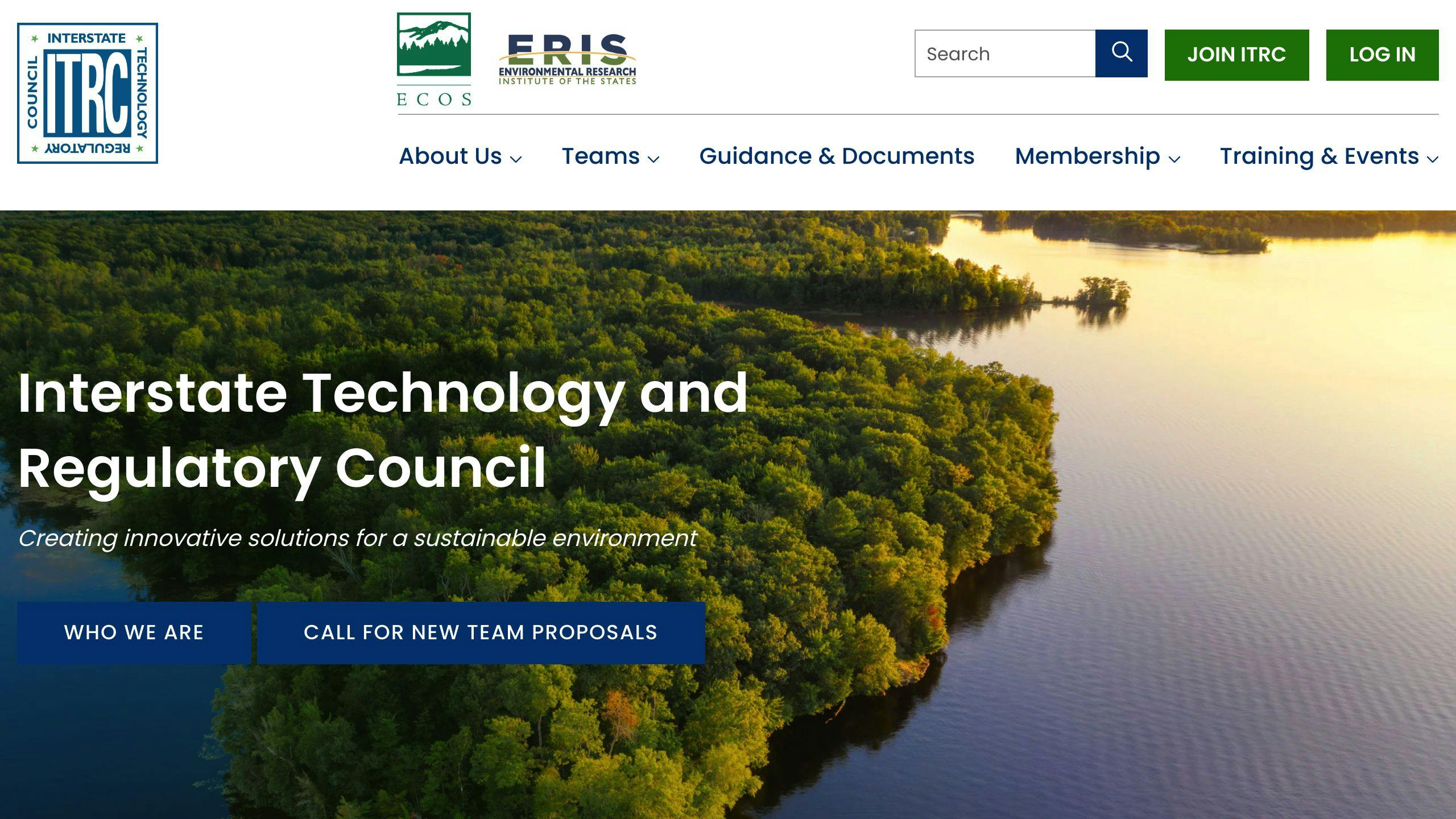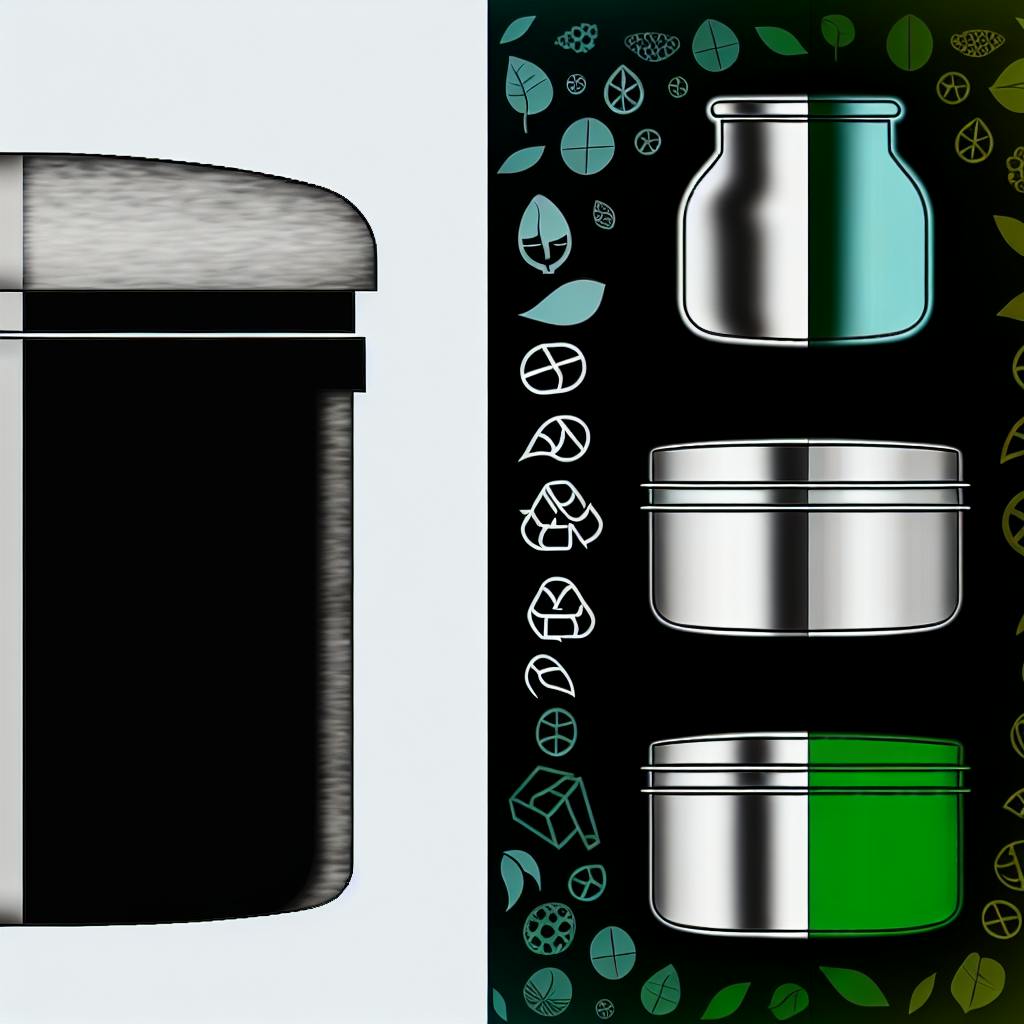The CLU-IN microplastics training seminar provides a comprehensive understanding of microplastics - small plastic particles ranging from 5 millimeters to 1 nanometer in size. The seminar equips professionals with knowledge to address microplastic pollution effectively by covering:
- Microplastic Sources: Intentional use, accidental release, and degradation of larger plastics
- Environmental Pathways: Transport mechanisms through water, air, and soil
- Human Health and Ecological Risks: Potential impacts of microplastics
- Mitigation Strategies: Policy approaches, technological innovations, and behavioral changes
- Case Studies: Successful microplastic reduction and remediation efforts
The seminar also introduces the ITRC Microplastics Guidance Document, a comprehensive resource on microplastics, their effects, and mitigation strategies.
| Key Sections | Topics Covered |
|---|---|
| 1 | Introduction to microplastics |
| 2 | Fate, transport, and environmental distribution |
| 3 | Sampling and analysis |
| 4 | Ecological and human health effects |
| 5 | Regulations |
| 6 | Mitigation, abatement, and best practices |
| 7 | Data gaps and ongoing research needs |
Led by experts from various organizations, the seminar provides a platform for attendees to engage with leading researchers, policymakers, and industry professionals through panel discussions and Q&A sessions. Additional resources, including webinar slides and microplastics toolkits, are also available to support participants' learning experience.
Seminar Overview: Goals and Content
The CLU-IN microplastics training seminar provides a comprehensive understanding of microplastics, their sources, effects, and mitigation strategies. This seminar equips professionals with the knowledge and skills necessary to address microplastic pollution effectively.
Learning Objectives for Participants
By attending the CLU-IN microplastics training seminar, participants can expect to:
- Understand microplastics, including their definition, size, and significance
- Learn about microplastic sources and pathways in the environment
- Identify potential human health and ecological risks associated with microplastics
- Develop strategies for mitigating microplastic pollution
- Familiarize themselves with existing regulations and policies related to microplastics
Topics Covered in the Seminar
The CLU-IN microplastics training seminar covers the following topics:
| Topic | Description |
|---|---|
| Microplastic Sources | Intentional use, accidental release, and degradation of larger plastic materials |
| Microplastic Pathways | Water, air, and soil transport mechanisms |
| Microplastic Effects | Human health risks, ecological impacts, and economic consequences |
| Microplastic Mitigation Strategies | Policy and regulatory approaches, technological innovations, and behavioral changes |
| Case Studies | Successful microplastic reduction and remediation efforts |
By attending the seminar, participants will gain a comprehensive understanding of microplastics and be equipped to develop effective strategies for addressing microplastic pollution in their work and daily lives.
ITRC Microplastics Guidance Document

The ITRC Microplastics Guidance Document is a valuable resource that provides a detailed understanding of microplastics for professionals. This document summarizes the available information on microplastics, covering topics such as:
Structure and Key Points of the Document
The guidance document is divided into seven sections, each focusing on a specific aspect of microplastics:
| Section | Topic |
|---|---|
| 1 | Introduction to microplastics, including sources and characteristics |
| 2 | Fate, transport, and environmental distribution |
| 3 | Sampling and analysis |
| 4 | Ecological and human health effects |
| 5 | Regulations |
| 6 | Mitigation, abatement, and best management practices |
| 7 | Data gaps and ongoing research needs |
This document provides a comprehensive overview of microplastics, making it an essential resource for environmental professionals, policymakers, and regulators seeking to understand and address microplastic pollution.
Using the Guidance for Policy and Action
The ITRC Microplastics Guidance Document serves as a valuable tool for policymakers and regulators. By utilizing the guidance document, policymakers can develop informed policies and regulations to address microplastics challenges. The document provides a clear understanding of microplastics, enabling policymakers to make informed decisions on mitigation strategies, regulations, and best management practices. Additionally, the document highlights data gaps and ongoing research needs, allowing policymakers to prioritize research and development in areas that require further investigation.
Seminar Presenters and Moderators
The CLU-IN microplastics training session is led by a team of experienced professionals with extensive expertise in the field of microplastics.
Presenter Contributions to Microplastics Research
The presenters for this training session are experts in their fields, with a focus on environmental engineering, risk assessment, and regulatory compliance. Here is a brief overview of their contributions:
| Presenter | Organization | Expertise |
|---|---|---|
| Alia Enright | TRC | Microplastics workshops, CORE Microplastics Sub Team lead |
| Yasemin Kunukcu | Roux, Inc. | Site-specific remedial solutions for emerging contaminants, including microplastics |
| Sophie Claes | ERM | Global programs for industrial clients, evaluating the impact, risk, and fate of industrial chemicals and microplastics |
| Scott Coffin | California State Water Resources Control Board | Research scientist, subject-matter expert for microplastics, leading agency efforts to monitor and manage microplastics pollution |
| Valerie Hanley | California Department of Toxic Substances Control | Senior Toxicologist, co-leader of the ITRC Microplastics Team |
| Kim Nimmer | City of Raleigh | Environmental program consultant, co-leader of ITRC's Microplastics Team |
| Julia Jaeger | Eurofins | Technical Specialist, analytical chemistry, particularly in the analysis of microplastics in different environmental and food matrices |
| Kevin Thomas | Queensland Alliance for Environmental Health Sciences | Professor, environmental health scientist, understanding environmental exposures associated with contaminants of emerging concern |
Moderator Roles and Discussion Facilitation
The moderators for this training session play a crucial role in steering the conversation and synthesizing information from diverse experts. They will facilitate discussions, encourage questions, and provide guidance on the application of microplastics research in real-world scenarios.
Supplementary Materials and Resources
The CLU-IN microplastics training session provides additional resources to support participants' learning experience. These resources include webinar slides, reference documents, and other microplastics resources.
Accessing Webinar Slides and Documents
To access these materials, attendees can visit the CLU-IN website and navigate to the microplastics training page. From there, they can download the slide presentation and reference documents for further study and application.
Additional Microplastics Resources
CLU-IN also offers a range of additional microplastics resources, including:
| Resource | Description |
|---|---|
| ITRC Microplastics Guidance Document | A comprehensive guide to microplastics, covering topics such as sources, effects, and mitigation strategies |
| Microplastics Outreach Toolkit | A collection of resources and tools for communicating about microplastics |
| CLU-IN Microplastics Training Webinar Page | A webpage with additional resources and information on microplastics training |
These resources are designed to support attendees who wish to delve deeper into the subject of microplastics and stay up-to-date with the latest developments in the field.
sbb-itb-1dc3f59
Global Microplastics Policies
Analyzing global approaches to microplastics policies to understand the international context and initiatives.
Comparing International Regulations
Examining how different countries have responded to microplastics, offering a comparative analysis of their policies and regulations.
| Region | Policy Approach |
|---|---|
| European Union | Banned microbeads in cosmetics, proposed restrictions on intentionally added microplastics |
| United States | Monitoring programs and regulations, state-level bans on single-use plastics |
| Canada | Listed plastics as a toxic substance, proposed single-use plastic bans |
| United Nations | Developing a global legally binding instrument to end plastic pollution |
Panel Discussions and Q&A Sessions
The CLU-IN microplastics training session features expert panel discussions, providing a platform for attendees to engage with leading researchers, policymakers, and industry experts. These sessions cover topics such as:
- Effectiveness of current regulations
- Emerging trends in microplastics research
- Strategies for mitigating microplastics pollution
Participants can ask questions, share their experiences, and learn from the expertise of the panelists.
Maximizing Seminar Participation
To get the most out of the CLU-IN microplastics training session, it's essential to be prepared and actively participate in the webinar.
Technical Preparation for the Webinar
Before joining the webinar, take a few minutes to:
- Test your Zoom connectivity to avoid any last-minute issues
- Update your applications to the latest versions to ensure compatibility with the webinar platform
- Familiarize yourself with the webinar interface and tools, such as chat boxes, Q&A sessions, and virtual breakout rooms
This will help you navigate the platform seamlessly and focus on the content.
Support Resources During the Seminar
During the seminar, you'll have access to various support resources to ensure a smooth and informative experience. These include:
| Resource | Description |
|---|---|
| Technical Support | Assistance with connectivity issues or platform-related problems |
| Content-Related Questions | Addressing questions through the Q&A session or by reaching out to the seminar moderators |
By being technically prepared and actively engaging with the webinar, you'll be able to maximize your participation and gain valuable insights from the CLU-IN microplastics training session.
Accessibility and Content Disclaimers
Ensuring Seminar Accessibility
We strive to make our microplastics training sessions accessible to all participants, including those with disabilities. To achieve this, we have implemented the following measures:
| Accessibility Feature | Description |
|---|---|
| Closed Captions | Our webinars are equipped with closed captions to assist participants who are deaf or hard of hearing. |
| Audio Descriptions | We provide audio descriptions for visually impaired participants to help them navigate the webinar interface. |
| Keyboard-Only Navigation | Our webinar platform is designed to be navigable using only a keyboard, ensuring that participants with mobility impairments can fully engage with the content. |
If you require any accommodations or have specific needs, please contact our support team at least 48 hours prior to the seminar. We will do our best to provide the necessary assistance to ensure your full participation.
Recording Policy and Content Use
All CLU-IN microplastics training sessions are recorded and made available for later review. By participating in the seminar, you consent to being recorded and agree to the following terms:
| Recording Policy | Description |
|---|---|
| Recording Usage | Recordings are for personal use only and cannot be shared, reproduced, or distributed without explicit permission from CLU-IN. |
| Content Copyright | The content presented during the seminar, including slides, documents, and recordings, is the property of CLU-IN and its presenters. Participants are not authorized to use or reproduce this content without permission. |
| Recording Availability | Recordings will be available for a limited time after the seminar. Participants are encouraged to review the recording within this timeframe, as it will not be available indefinitely. |
By understanding our recording policy and content use guidelines, you can make the most of our microplastics training session while respecting the intellectual property and rights of our presenters and organizers.
Seminar Key Points and Next Steps
Recap of Seminar Learning Outcomes
The CLU-IN microplastics training session covered the importance of addressing microplastic pollution. Participants learned about microplastics, their global impact, and the significance of policy and action. The seminar also introduced the ITRC microplastics guidance document, presenter roles, and supplementary resources.
Continuing Microplastics Education and Action
To further your understanding of microplastics, explore the additional resources provided during the seminar. You can also:
- Participate in beach cleanups or other microplastics-related activities
- Advocate for policy changes to reduce microplastic pollution
- Share your knowledge with others to raise awareness about the issue
By taking these steps, you can contribute to a community committed to mitigating the effects of microplastics on the environment.


